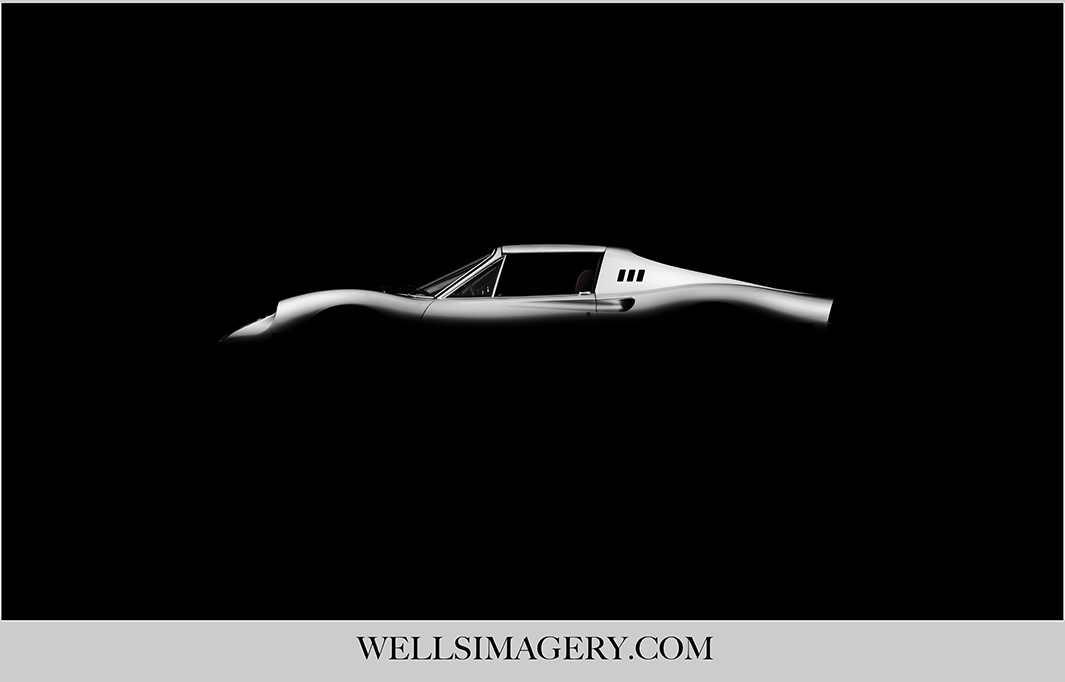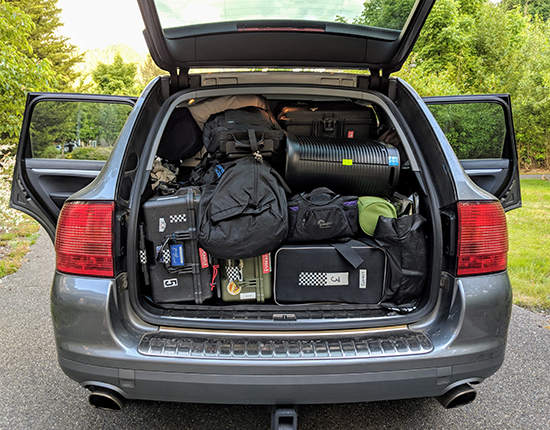PHOTOGRAPHY EQUIPMENT
As a full-time pro for over 30 years, the gear I take on assignment depends on what is needed. Contrary to what it might look like, I prefer to work with the minimum amount of equipment.
Being familiar with the gear is most important to me. To that end, I’ve always carried some form of Canon or Leica in my kit. With their cameras and lenses, I don’t have to think. I just do. When Leica discontinued their 35mm SLR film-based system, I switched to autofocus Canon EOS 35mm SLRs.
Around the same time, I also switched from Kodachrome 25 to Fujichrome Velvia 50 slide film. When digital camera image quality evolved to a more than satisfactory level, I transitioned to Canon’s full-frame digital camera bodies and their latest lenses for my editorial and commercial work. I’ve stayed with Canon’s latest offerings since then for my professional assignments.
My Basic Automotive Photography Kit For Stills and Video:
Canon R5 mirrorless bodies (2) with adapters and spare batteries
Canon 5DS-R body or Canon 5D Mk IV body
Canon 16-35mm f/4 IS EF lens
Voightlander 50mm f/1.1 and 250 D close up lens
Canon RF 24-105mm f/4 IS lens
Canon 70-200mm f/4 IS EF II lens
Canon 1.4X Extender, 12mm ext tube
Samsung Galaxy camera phone with DJI Osmo Mobile 6 and mount
ND and polarizing filters
MacBook Pro M2 with memory cards, readers
Samsung and Lacie Drives
Other Stuff (as needed):
Canon 500mm f/4 IS EF lens for motorsports
Voigtlander 40mm f1.4 MC VM for film work
DJI Drones
DJI Ronin Stabilizers
Tascam and cell phone audio recorders
Harness, camera car mounts, walkie talkies, monopods, tripods, cable releases
Porsche Cayenne equipped for car to car photography and cinematography
For flash, the Profoto portable lighting system has proven reliable for studio shots and moving subjects outdoors. All flashes can fail, just like memory cards and external hard drives, so I also carry two, plus a spare flash tube. The lighting kit also includes C-stands, reflectors, gels and a variety of modifiers and soft boxes.
Spare bodies include (2) Canon 5D MK IIIs. Spare Canon EF lenses include a Canon 24mm f/1.4 II, 50mm f/1.4, and 50mm f/2.5 Macro, plus a Leica 80mm f/1.4 R lens adapted to Canon. My filming assistants also have access to a dozen extra lenses from a 21mm super wide angle to a 180mm telephoto. More options include a Nikkor 28mm f/2 AI lens and a cinema set of Duclos equipped Leica R lenses: 28mm 2.8 V2, R 35mm f2 V2 and R 50mm f2 V2.
Photography equipment is simply a tool. Seeing and having something to say are MUCH more important. That said, I look for gear that is of the highest quality, easy to use, and has characterful rendering.
After the shoot, the used digital memory cards stay in a secure holder inside a zippered vest pocket on my person. As soon as I return to my hotel, the RAW files are backed up on my computer, Dropbox, and at least one hard drive. All drives are kept in different locations, or one is FedExed home. I love what I do, but I’ve also learned not to assume anything.
P.S. My kit for vacationing and personal work is a digital camera, usually the Leica Q with its 28mm f/1.7 Aspherical lens and an Leica M9 with a 50mm f/2 Summicron. This is for pure seeing, shooting slowly and deliberately.

